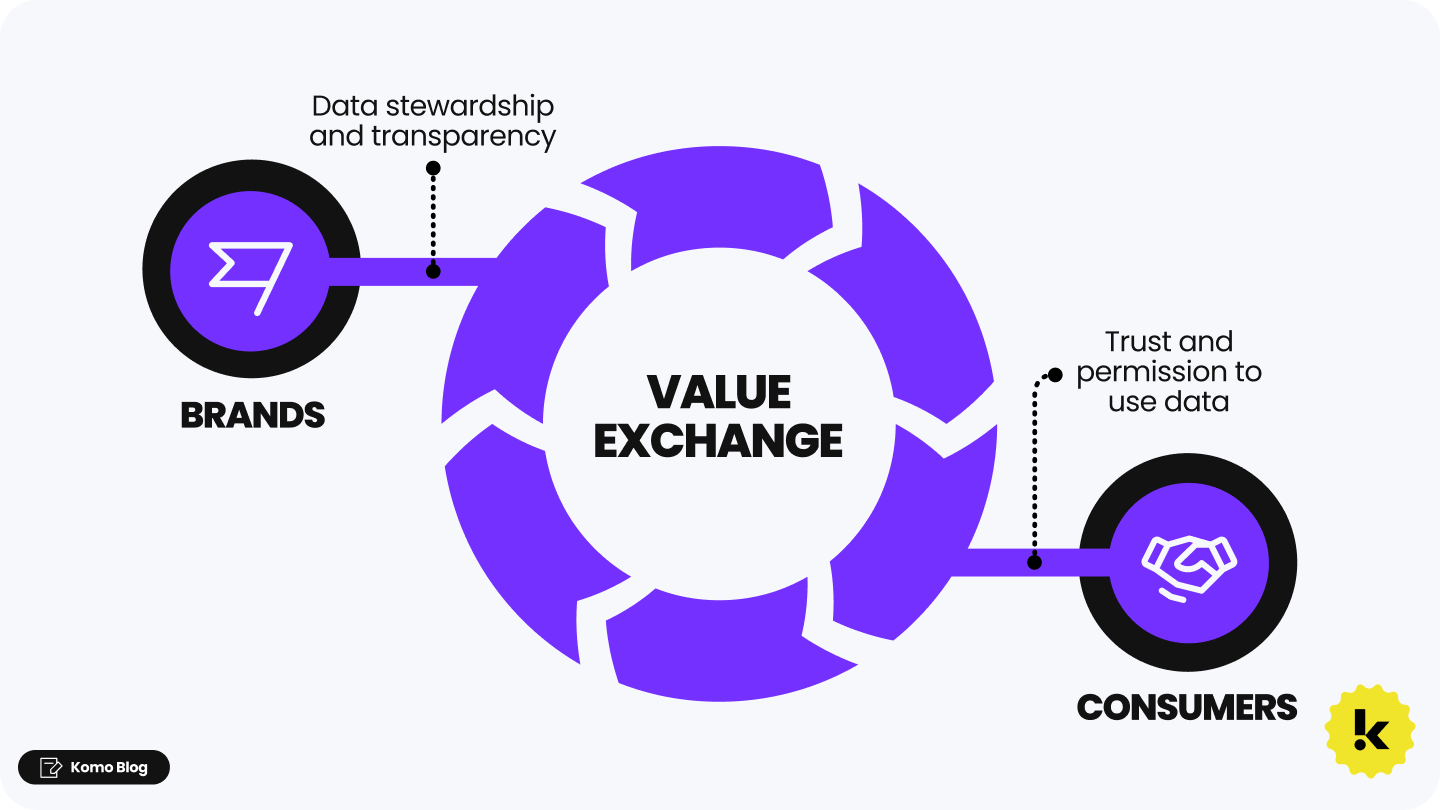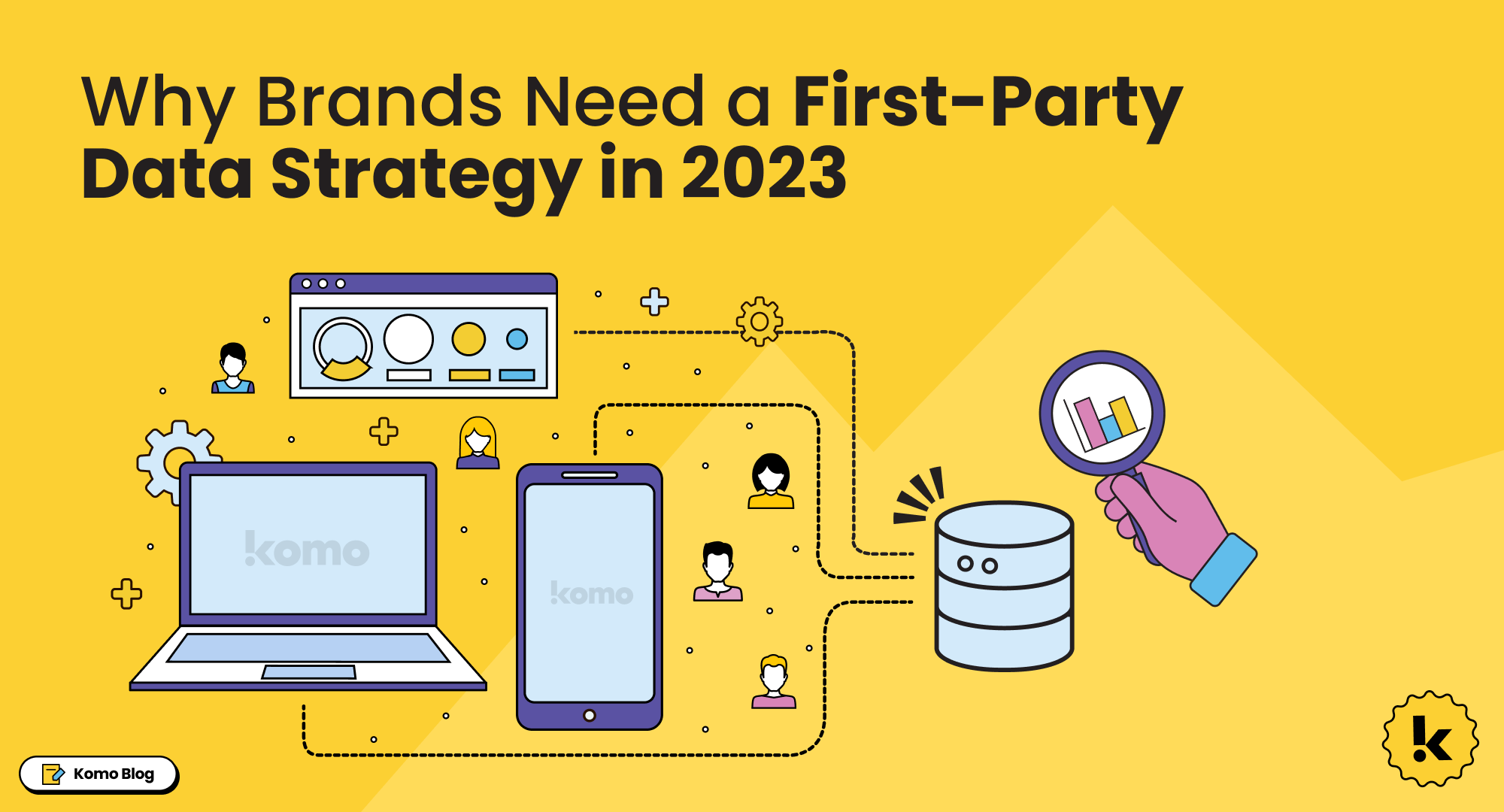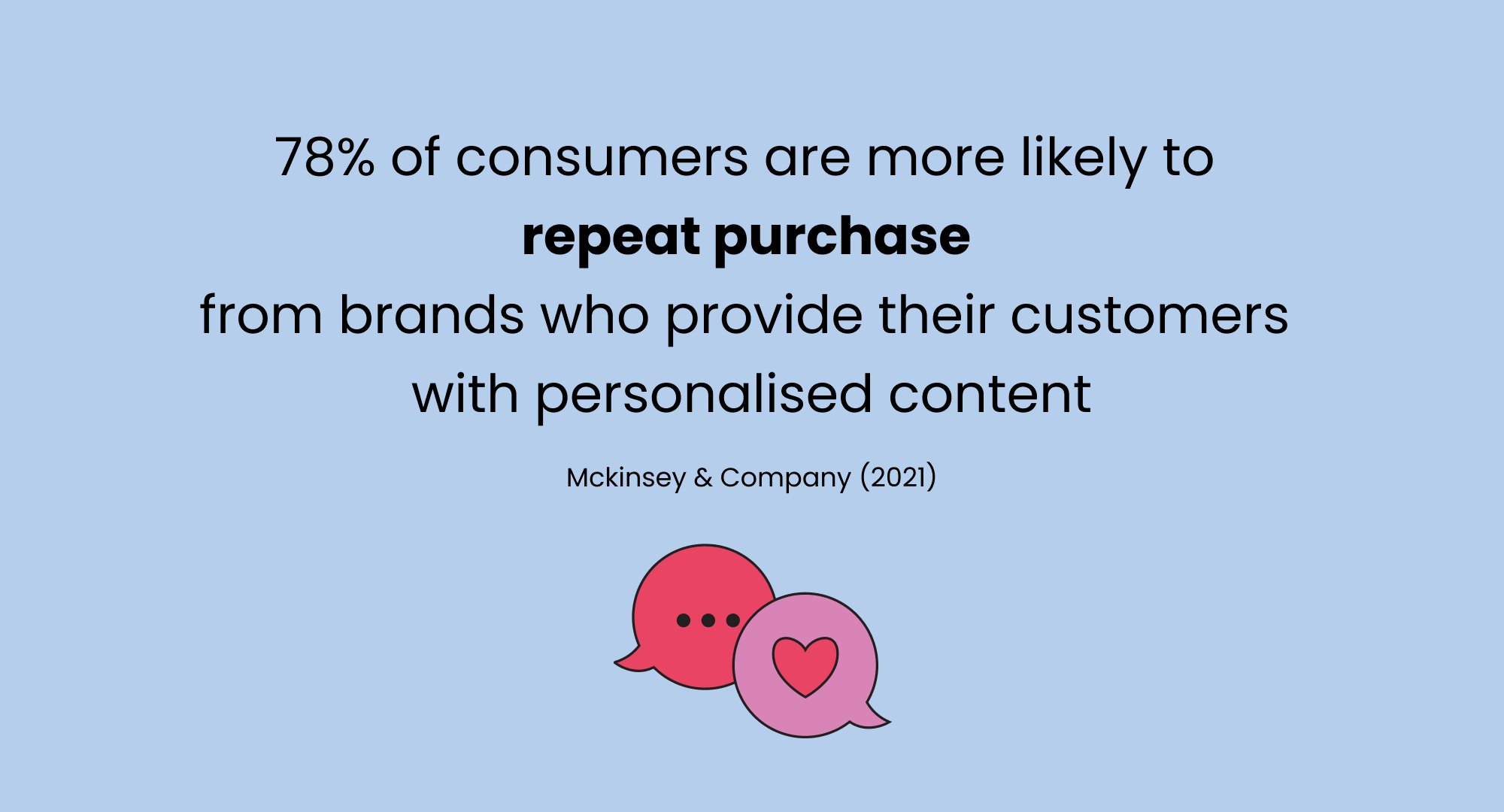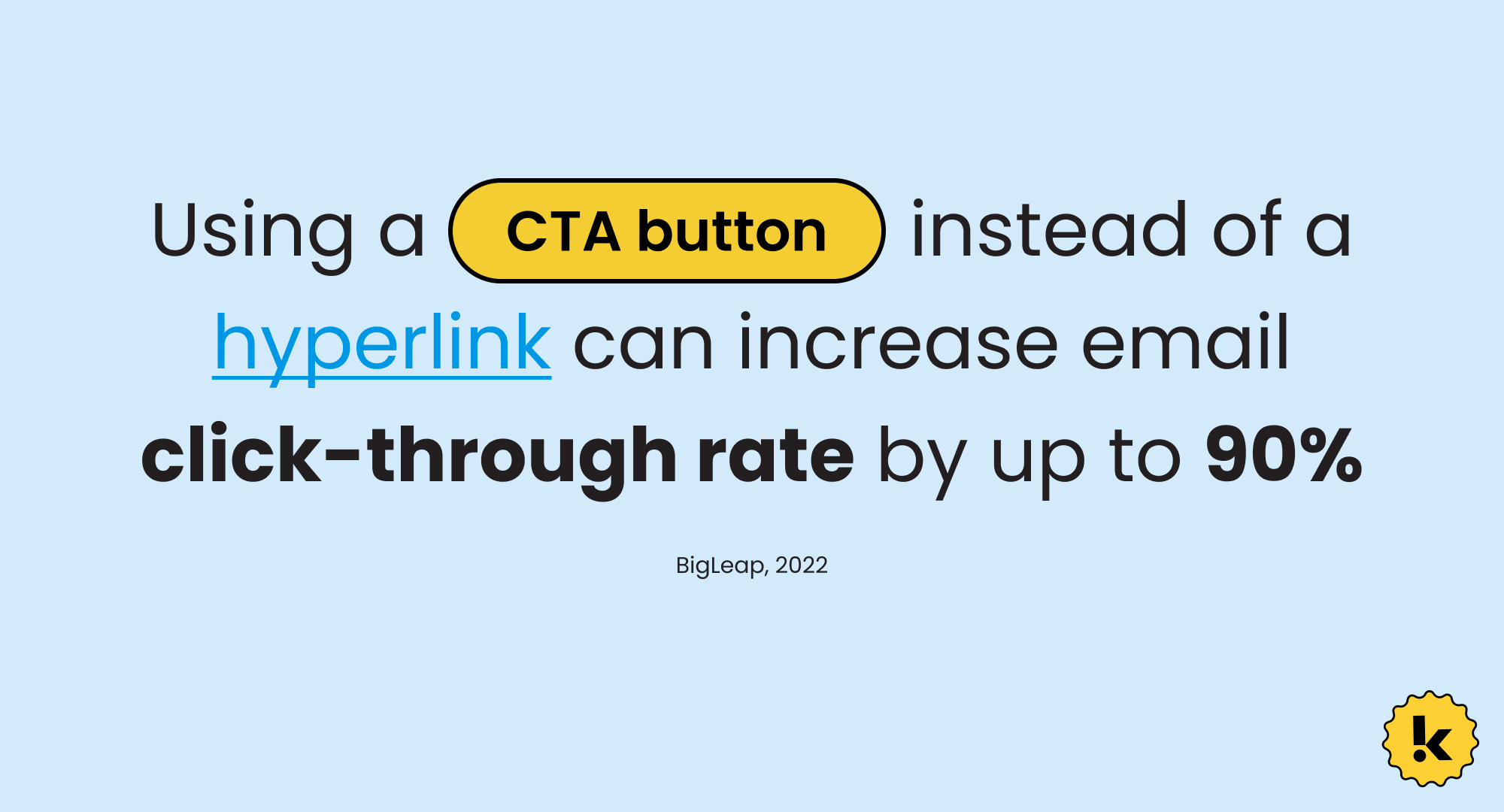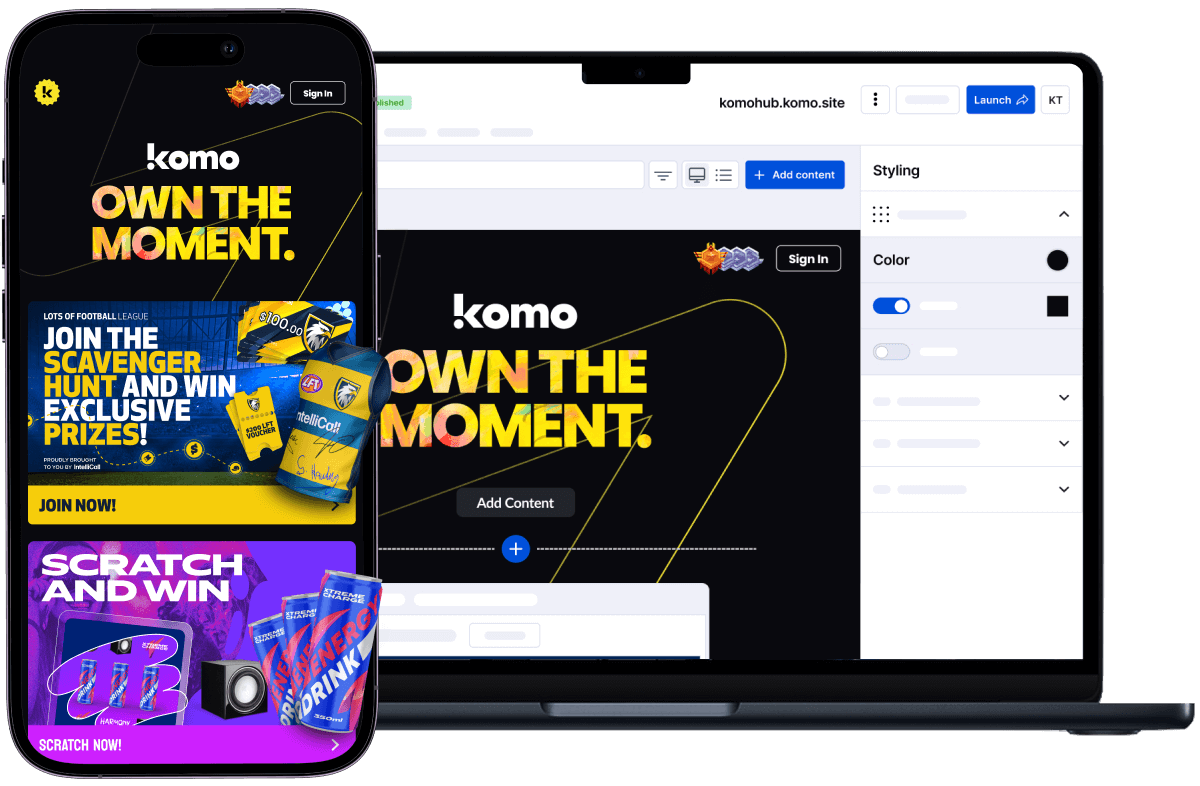Collecting first-party data has become increasingly important as more companies focus on building more personalised customer relationships in a post-cookie world.
Unless you’ve been living under a marketing rock somewhere, you’re probably already aware that third-party cookies are on the way out. Google has committed to ditching the crumbs sometime in 2024. Whenever that happens, you’ve gotta be ready for a first-party world.
First-party data is information a company collects directly from customers, such as purchase history, website behaviour, and email interactions.
In simple terms, data that customers willingly hand over to a company, often in return for something—an experience or an offer, for example. This blog post will explore why first-party data is essential for building customer trust and loyalty.
Transparency Builds Trust
One of the key reasons first-party data is vital for building customer trust is that it is collected directly from the customer. When customers know that a company is collecting data directly from them, they are more likely to trust that company and feel that their privacy is being respected.
A recent Office of the Australian Information Commissioner survey found that 94% of Australians want more transparency and control over how their personal information is used. By collecting first-party data, companies can demonstrate that they are being transparent and respectful of their customer's privacy, which can help build trust and loyalty over time.
Personalisation Drives Loyalty:
Another key benefit of first-party data is that it allows companies to create personalised customer experiences. By analysing first-party data, companies can gain a deeper understanding of their customer's needs and preferences, which can be used to personalise marketing efforts and improve the overall customer experience.
A survey by Accenture found that 73% of Australian consumers are more likely to do business with companies that use personal information to create tailored experiences.
Improved Targeting Leads to More Engaged Customers:
First-party data can also be used to create more targeted marketing campaigns, which are more likely to resonate with customers. Customers who receive marketing messages relevant to their interests are more likely to engage with the brand.
A recent study by Epsilon found that personalised emails have an open rate of 29%, compared to a 15.1% open rate for non-personalised emails. Companies can increase customer engagement and build loyalty over time by using first-party data to create more personalised and targeted marketing campaigns.
Enhanced Customer Experience Drives Loyalty:
Finally, first-party data is important for building customer loyalty. It allows companies to improve the overall customer experience. By analysing website behaviour, companies can identify areas of their website that may be causing customer frustration and make improvements to enhance the user experience.
Customers who have a positive experience with a company are more likely to become loyal over time.
How Can Companies Collect First-Party Data?
Now that we've established why first-party data is important for building customer trust and loyalty, let's look at how companies can collect this data.
- Website analytics: Companies can use tools like Google Analytics to track website behaviour and collect data on page views, bounce rates, and time on site.
- Email marketing: When customers subscribe to a company's email list, they are providing first-party data that can be used to personalise future email marketing campaigns.
- Loyalty programs: By offering loyalty programs, companies can collect first-party data on customers' purchase histories and use this information to create targeted marketing campaigns.
- Surveys: Companies can collect first-party data on customer satisfaction and preferences by asking customers for feedback through surveys.
In conclusion, first-party data is key for companies looking to build stronger customer relationships and increase loyalty. By collecting data directly from their customers, companies can demonstrate transparency, improve personalisation efforts, target marketing campaigns more effectively, and enhance the overall customer experience.
As consumers become more demanding and expect more from the brands they interact with, first-party data is becoming increasingly important for companies looking to remain competitive and stay relevant in their industries.
If you want to learn more about how Komo can help you collect first-party data in an ethical and engaging way, reach out to us below, and we’ll personally introduce you to our incredible platform that can help you achieve just that.
